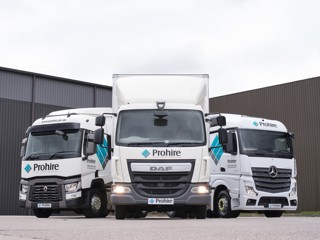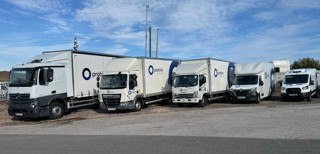A company that is describing itself as the ‘Airbnb for cars’ is looking to offer daily rental prices up to 35% below traditional operators and will build its fleet with the help of motorists and smaller daily rental companies.
Turo, a US-based peer-to-peer marketplace, has launched in London and puts owners of vehicles in contact with a network of potential customers looking to rent a car or van.
It also features a peer-to-peer service, enabling owners to earn money from their vehicles.
While Turo has launched primarily focusing on the consumer market in the UK, Xavier Collins, Turo UK director, said fleet is a focus too. Fleets that outright purchase their vehicles could add vehicles to the Turo service to earn money, for example on pool cars that may be underutilised.
Collins confirmed that Turo can also add cars that are either leased through contract hire, or bought through personal contract hire agreements, provided they have the permission of the lessee to do so.
In the US, Turo’s Business Class offers corporate customers access to what Collins calls a curated fleet of five star vehicles with the highest rated hosts (vehicle owners) and added benefits like delivery of the vehicle to a destination of their choosing, like an airport or train station.
Business Class is not available yet in the UK, but it is something Collins is looking at.
The Turo service is delivered via an app, with Turo taking a percentage share of the daily rental cost.
Collins told Fleet News that it is hoping to build up its fleet of vehicles with the help of smaller operators to rival rental giants like Hertz and Enterprise.
These ‘commercial hosts’ will gain access to a wider reach of customers by adding their vehicles to the Turo app, but will cover the deal with their own commercial insurance and customer service. Turo takes a 10% slice from each daily rental cost.
For the peer-to-peer service, Turo takes a 25% cut as it arranges customer support and insurance cover through its partner Allianz. It has built up a fleet of 1,000 vehicles over the past 12 months following a soft launch in London.
Turo’s own research shows the average UK driver spends less than nine hours per week behind the wheel. For the remaining 8,304 hours each year, cars are sitting idle.
Collins said: “We’ve had a strong start and I hope this growth continues. The mission of the company is to empower those with vehicles to make better use of that asset.
“I don’t want to put a number on what we’re looking for in terms of fleet size to make this scalable, but the signs from launch are positive. Our plan is to offer Turo across the UK.”
Collins said US customers are seeing the average monthly earnings from Turo at around £500 based on nine days of rental.
The company says there will also be a Turo Go telematics offering launched in the next six months to provide data on mileage and driver behaviour. This will be used to give information back to vehicle owners and to help monitor drivers using the service.
Turo provides a pricing guide based on its own algorithm that suggests how much to charge per day for the vehicle, but this is not mandated and owners of vehicles can set prices at any level they like.
The age of the vehicles that can be added to the Turo service is limited to 10 years.
Hosts and drivers will be monitored through a five-star review system. Drivers are pre-screened with driver licence checking software and Collins says Turo has multiple data points to operate background checks.
There have been no incidents since Turo launched, but Collins acknowledges that as the rental miles go up with the company growing, a vehicle will be involved with an incident at some point.






















steve - 05/12/2018 10:42
No mention of insurance. Surely there is no current insurance product that allows you to let a stranger drive your car on a hire/reward basis. Even if Turo cover the rental period the MID will still show the owners details on file.